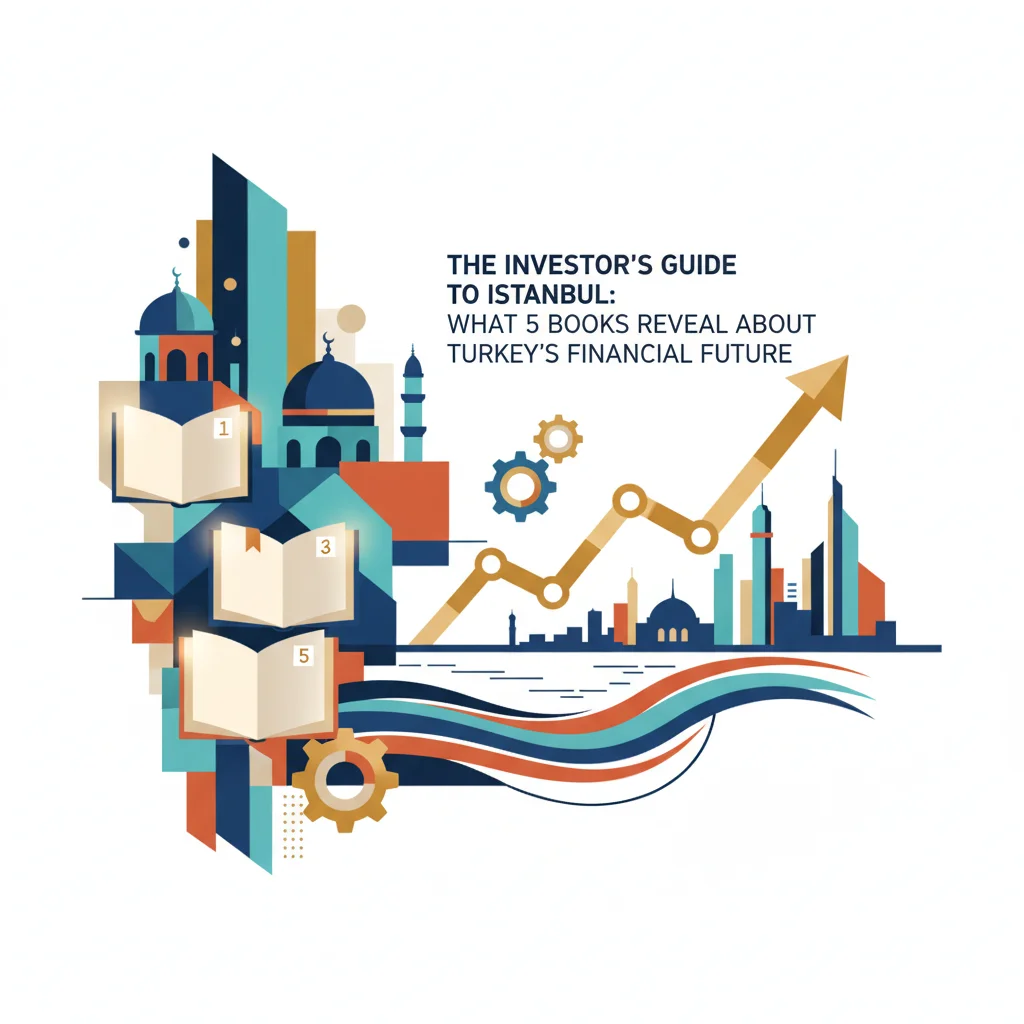
The Investor’s Guide to Istanbul: What 5 Books Reveal About Turkey’s Financial Future
In the world of high-stakes investing, we are conditioned to trust the numbers. We build sophisticated models, analyze terabytes of market data, and track macroeconomic indicators with religious fervor. From the fluctuations of the Borsa Istanbul (BIST 100) to the latest central banking policy, quantitative analysis is the bedrock of modern finance. But what if the most crucial data for understanding a complex emerging market like Turkey isn’t found in a spreadsheet, but between the pages of a novel?
Istanbul is more than just a city; it is a living, breathing paradox. It’s a hyper-modern metropolis with a burgeoning financial technology sector, yet it is haunted by the ghosts of empires. It’s a bridge between East and West, a member of NATO with deep ties to Central Asia and the Middle East, and a place where secular ambition and profound tradition coexist in a delicate, often volatile, balance. To truly grasp the risks and opportunities inherent in Turkey’s economy, one must look beyond the immediate stock market trends and delve into the city’s soul—its collective memory, its anxieties, and its enduring aspirations.
This is not a rejection of traditional economic analysis. Rather, it is an argument for a more holistic approach. Understanding the cultural and historical currents that shape a nation’s psyche can provide invaluable context for market movements, political risk, and long-term economic trajectories. Literature, in its unique capacity to capture the human experience, offers a powerful portal into this deeper understanding. It is the ultimate form of qualitative due diligence.
Why Your Turkey Portfolio Needs a Reading List
For any professional involved in international finance, from venture capitalists eyeing the next fintech unicorn to traders managing exposure to the Turkish Lira, understanding the local context is paramount. Turkey’s economy has demonstrated both incredible dynamism and heart-stopping volatility. The country’s GDP has seen dramatic swings over the past two decades, reflecting a complex interplay of domestic policy, geopolitical shifts, and deeply ingrained social tensions.
Reading the great novels and histories of Istanbul provides a framework for interpreting these swings. It helps an investor:
- Assess Geopolitical Risk: Istanbul’s history is a masterclass in geopolitical maneuvering. Understanding its past as a nexus of empires, espionage, and trade routes provides context for Turkey’s current foreign policy and its complex relationships with Europe, Russia, and the Middle East.
- Gauge Social & Political Sentiment: Novels often capture the zeitgeist far more effectively than opinion polls. They explore the tensions between modernity and tradition, the struggles of a rising urban class, and the unresolved questions of national identity that fuel political movements and create market uncertainty.
- Identify Long-Term Economic Trends: Stories of migration, urbanization, and social mobility are, at their core, stories about economics. They reveal the grassroots energy that powers small businesses, the challenges of infrastructure, and the consumer aspirations that drive growth in sectors from real estate to financial technology.
By engaging with these narratives, we can begin to build a more resilient and nuanced investment strategy, one that anticipates change rather than just reacting to it.
Five Books to Decode Istanbul’s Economic DNA
The following list, inspired by a selection from the <a href="https://www.ft.com/content/67e16404-cba6-4fd8-8b47-da7ecb51


